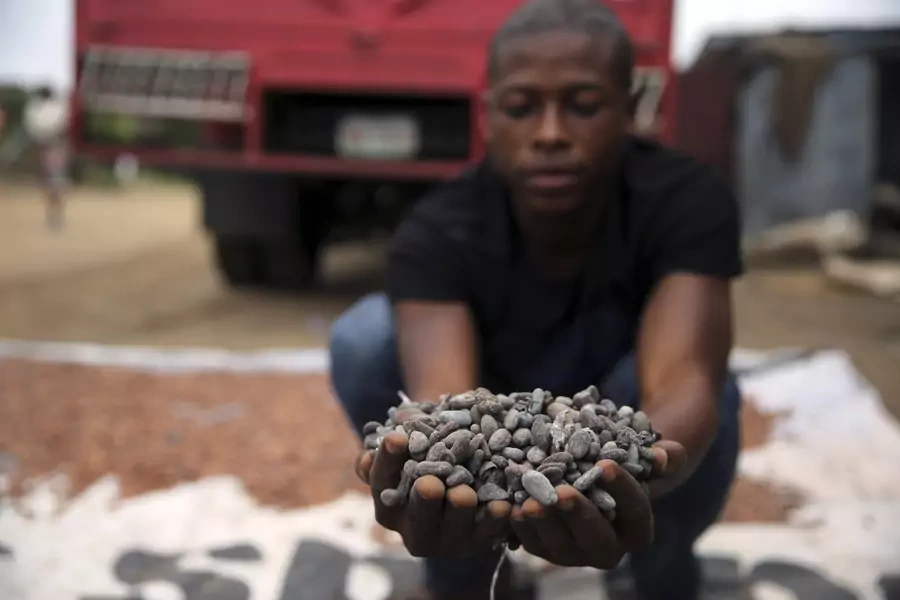Fifty-Seven Years After: The Case for Restructuring Nigeria

Ayobami Egunyomi is a Franklin Williams intern for Africa Policy Studies at the Council on Foreign Relations in Washington, DC. She received her BA in International Relations from Indiana University–Purdue University Indianapolis. She is a native Nigerian.
The decade after Nigeria’s independence, Africans referred to it as “the giant of Africa,” with the promise of great things to come for the newly minted African nation. Fifty-seven years after, it is a different story. Plagued by myriad problems, the future of Nigeria in its current form, with less than twenty years as a democracy under its belt, is bleak. Fortunately, the people’s consciousness of the severity of the situation is growing.
More on:
The country is witnessing a renewed firmament for the secession of Biafra by the Southeasterners and support for restructuring by the Southwesterners. Even Nigerian elites, such as Bola Tinubu, Nobel laureate Wole Soyinka, Emeka Anyaoku, and former vice president of Nigeria Atiku Abubakar, are lending their voices to support restructuring the country. The increasing clamor for change should be unsurprising considering how numerous the problems are that the country has been plunged into, including poor infrastructure, lack of good governance, endemic corruption in all sectors, as well as ethnic and religious tensions.
Restructuring in order to enable true federalism represents a first step to solving the challenges the country faces. Nigeria practiced true federalism and regionalism in the 1960s as enshrined in the 1960 and 1963 Nigerian constitutions. However, with the emergence of the 1966 Military junta in Nigeria came the destruction of this system, and Nigeria has since been unable to return. One of the most viable ideas put forward for restructuring Nigeria is a new system that will subsume the thirty six states into their already-present six geopolitical zones. These zones would then become self-governing regions, with their own local governments under the auspices of a less powerful federal government. The regions increased autonomy would enable them to look inward and develop more self-reliant local economies, as opposed to relying on ‘handouts’ of oil revenue from the Federal Capital Territory (Abuja). Western Nigeria is rich with cocoa and limestone, the South with oil palm, coal, and crude oil, and the North with agricultural resources such as groundnut and cotton. As these regions turn inward for wealth creation and development and hold themselves accountable, they will help create a vibrant and diverse national economy that can propel Nigeria forward.
Contrary to popular belief, regionalism does not pose a threat to nationalism. Instead, it furthers the cause of developing a national identity by promoting equitable regional development throughout the country. This is because uneven development among the regions has bred resentment that eventually expresses itself in the form of ethnic and religious tensions. Suffice to say, restructuring would reduce such ethnic and religious tensions. Since Nigerians are largely loyal to religion and ethnicity, it would not be hard to convince them that restructuring might be the solution because restructuring would be done along ethnic and religious lines. Moreover, it will silence the agitation of the unrelenting Biafra and Niger Delta movements by giving them a region with the autonomy they seek.
True federalism will send the old recycled politicians back to their tent as there will be less concentration of power in the center, hence less reliance on the ‘national cake’—the vast oil wealth of Nigeria that it distributes through Abuja to the rest of the country. Hopefully, by removing this concentration of wealth and temptation, this new system can at least begin to address the bane of corruption. While these politicians could take this menace of corruption to the regional level, it is unlikely to be so, as citizens would be better able to hold their regional leaders accountable when they see other regions flourish, encouraging friendly competition among these regions. This form of accountability, one that is closer to home and not in the far-away capital, is what is needed to make Nigeria work.
More on:
 Online Store
Online Store